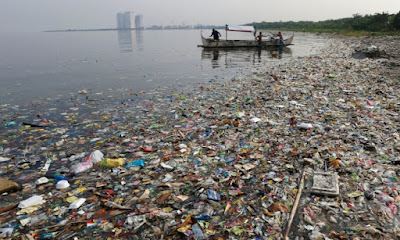Food Waste in the headlines
EMERGE Recycling
Last week food waste, on a global scale hit the headlines in the UK. The Institute of Mechanical Engineers (IME) published a report titled GLOBAL FOOD WASTE NOT, WANT NOT .
To quote the report:
“Major supermarkets, in meeting consumer expectations, will often reject entire crops of perfectly edible fruit and vegetables at the farm because they do not meet exacting marketing standards for their physical characteristics, such as size and appearance. For example, up to 30% of the UK’s vegetable crop is never harvested as a result of such practices. Globally, retailers generate 1.6 million tonnes of food waste annually in this way.
Of the produce that does appear in the supermarket, commonly used sales promotions frequently encourage customers to purchase excessive quantities which, in the case of perishable foodstuffs, inevitably generates wastage in the home. Overall between 30% and 50% of what has been bought in developed countries is thrown away by the purchaser. Controlling and reducing the level of wastage is frequently beyond the capability of the individual farmer, distributor or consumer, since it depends on market philosophies, security of energy supply, quality of roads and the presence of transport hubs. These are all related more to societal, political and economic norms, as well as better-engineered infrastructure, rather than to agriculture. In most cases the sustainable solutions needed to reduce waste are well known.
The challenge is transferring this know-how to where it is needed, and creating the political and social environment which encourages both transfer and adoption of these ideas to take place.” (page 3 of the report)
There is a lack of referencing in the report to support these points, but interestingly, the figure of 30% of the UK vegetable crop not harvested quoted above matches an estimate given to EMERGE by a farmer who is donating graded out food to FareShare North West. We went to visit the farmer in November to make a film, as part of the NESTA Waste Reduction Challenge and asked him how much of his crops, in a good year are ploughed back because they don’t meet specifications. His reply was 30%.
EMERGE’s entry into the NESTA Waste Reduction Challenge is to capture some of this food and by doing so to tackle food waste, food poverty and worklessness in the North West. We are one of 25 semi finalists hoping to be selected as a finalist (one of 5). If successful we will test our idea, which is to bring outgraded food into New Smithfield Market, distribute it to people in food poverty and offer volunteering, work placements and apprenticeships processing surplus food in an onsite kitchen. You can see our short film about this idea here: https://vimeo.com/55705086.
We are seeking to do exactly what the IME report calls for, so let’s hope that we’re given the opportunity to test the idea!
Debbie Ellen
Last week food waste, on a global scale hit the headlines in the UK. The Institute of Mechanical Engineers (IME) published a report titled GLOBAL FOOD WASTE NOT, WANT NOT .
To quote the report:
“Major supermarkets, in meeting consumer expectations, will often reject entire crops of perfectly edible fruit and vegetables at the farm because they do not meet exacting marketing standards for their physical characteristics, such as size and appearance. For example, up to 30% of the UK’s vegetable crop is never harvested as a result of such practices. Globally, retailers generate 1.6 million tonnes of food waste annually in this way.
Of the produce that does appear in the supermarket, commonly used sales promotions frequently encourage customers to purchase excessive quantities which, in the case of perishable foodstuffs, inevitably generates wastage in the home. Overall between 30% and 50% of what has been bought in developed countries is thrown away by the purchaser. Controlling and reducing the level of wastage is frequently beyond the capability of the individual farmer, distributor or consumer, since it depends on market philosophies, security of energy supply, quality of roads and the presence of transport hubs. These are all related more to societal, political and economic norms, as well as better-engineered infrastructure, rather than to agriculture. In most cases the sustainable solutions needed to reduce waste are well known.
The challenge is transferring this know-how to where it is needed, and creating the political and social environment which encourages both transfer and adoption of these ideas to take place.” (page 3 of the report)
There is a lack of referencing in the report to support these points, but interestingly, the figure of 30% of the UK vegetable crop not harvested quoted above matches an estimate given to EMERGE by a farmer who is donating graded out food to FareShare North West. We went to visit the farmer in November to make a film, as part of the NESTA Waste Reduction Challenge and asked him how much of his crops, in a good year are ploughed back because they don’t meet specifications. His reply was 30%.
EMERGE’s entry into the NESTA Waste Reduction Challenge is to capture some of this food and by doing so to tackle food waste, food poverty and worklessness in the North West. We are one of 25 semi finalists hoping to be selected as a finalist (one of 5). If successful we will test our idea, which is to bring outgraded food into New Smithfield Market, distribute it to people in food poverty and offer volunteering, work placements and apprenticeships processing surplus food in an onsite kitchen. You can see our short film about this idea here: https://vimeo.com/55705086.
We are seeking to do exactly what the IME report calls for, so let’s hope that we’re given the opportunity to test the idea!
Debbie Ellen

Many cities have joined the restaurant compost movement. I am glad to see there is commercial food waste recycling grand rapids going strong.
ReplyDelete